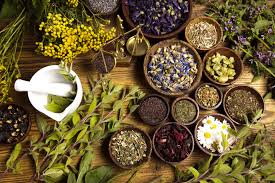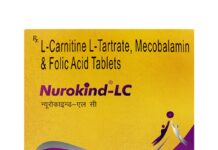 Also known as herbal medicine or botanical medicine, Herbalism refers to the use of plants and other natural substances for healing, preventing and treating illness, and improving health. With a holistic approach to health, herbal medicine addresses the physical, mental, emotional, and spiritual aspects of an individual.
Also known as herbal medicine or botanical medicine, Herbalism refers to the use of plants and other natural substances for healing, preventing and treating illness, and improving health. With a holistic approach to health, herbal medicine addresses the physical, mental, emotional, and spiritual aspects of an individual.
Herbalists or herbal practitioners are specially trained in the field of herbal medicine, which is recognized as a form of complementary and alternative medicine (CAM) in the Western world. Statistics published by the World Health Organization indicate that up to 80% of people worldwide use herbs, spices, and herbal remedies in their health care plan. Labeling standards for herbal remedies are regulated by the U.S. Food and Drug Administration (FDA).
Interest in herbalism has increased significantly in recent years, with a growing concern over the overuse of conventional drugs and a trend towards alternative and natural forms of treating illness, injury, and disease. Drawing on the fact that herbal remedies have been used successfully for millennia, dating back to ancient Egypt, Greece, Rome, and China, the health benefits of herbs are well documented.
Healing properties of various herbs (which originate from roots, leaves, barks, seeds, berries, fruits, and flowers) include:
• Antibacterial properties
• Antiviral properties
• High in B-vitamins
• High in trace minerals
• Contain disease-fighting antioxidants
• Contain essential oils
• Provide vitamins, mineral, and enzymes that support human health
• Help boost the body’s immunity system
Herbal remedy benefits
Every herb has a distinctive flavor, energetic quality, and healing property with a corresponding healing effect on the body. For instance, marshmallow root with its cooling properties is used to treat high fever, rapid pulse, and excess heat in the body; cinnamon bark and dried ginger are known for their warming and stimulating properties.
Additional health benefits
Cinnamon: High in antioxidants; reduces inflammation; lowers/regulates blood sugar and blood triglyceride levels; alleviates nausea; increases sensitivity to insulin; provides calcium, iron, and magnesium
Garlic: Aids in reducing blood pressure and cholesterol; improves cardiovascular health; being studied for its anti-cancer properties
Basil: Anti-inflammatory and antiviral properties; helps with digestive disorders and prevention of osteoarthritis; being studied for its anti-cancer properties
Arrowroot: Highly digestible; known for its soothing effects; used to treat digestive disorders and conditions such as Irritable Bowel Syndrome
Dill: (Weed/Seed) Known for its antibacterial and stomach-settling properties (making it popular among pregnant women who crave pickles)
Cayenne: Increases circulation, reduces risk of heart disease, improves absorption of other nutrients
Mint: Alleviates nausea; calms digestive troubles; contains essential oils; can be used to repel mosquitoes
How Herbs Are Dispensed
Herbs can be dispensed in numerous ways, including:
• Pills
• Powders
• Lotions
• Oils
• Teas
• Salves/Ointments
• Syrups
• Infusions
• Aromatics
• Juices
• Tinctures or extracts
• Whole (dried or fresh)
Courtesy healthpro.com






